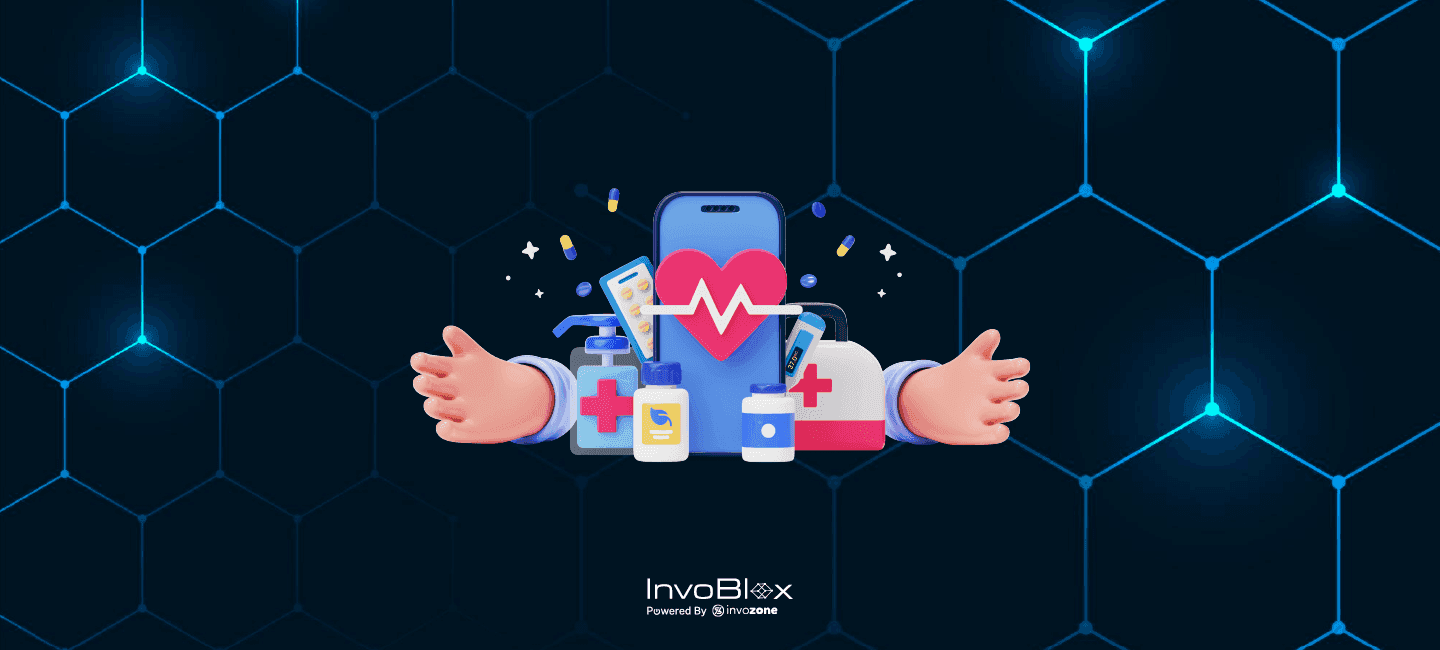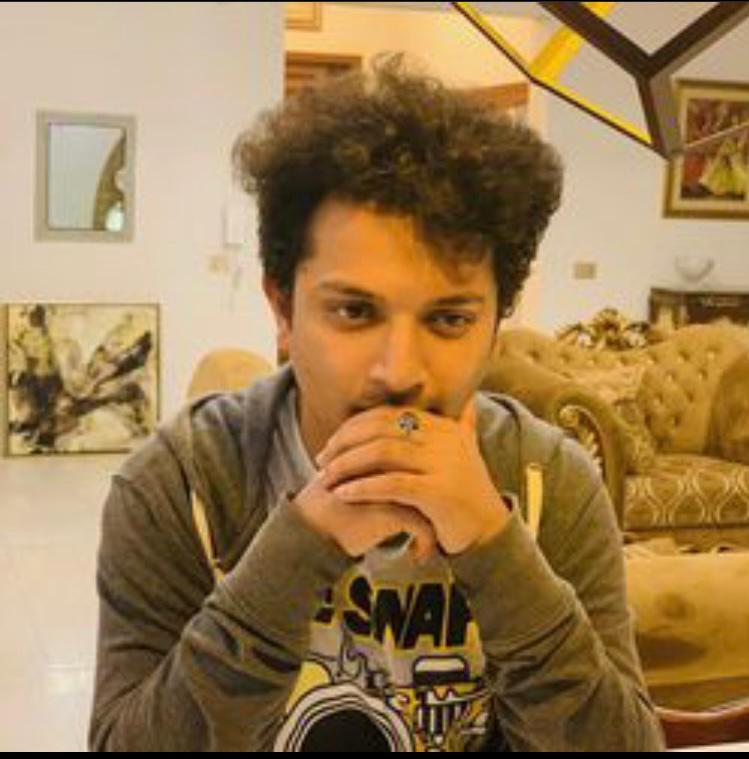
Blockchain And AI Role In Healthcare
Table of Contents
Both Artificial Intelligence (AI) and Blockchain technology are new innovations positively changing the direction of the healthcare sector. There are many approaches to achieve this, such the use of Blockchain technology to display patient medical records for easier search and tracking. They can also use AI algorithms to improve decision-making skills or analyze large amounts of data for optimal results.
By integrating the latest AI empowered blockchain in healthcare, medical systems can benefit from improved service efficiency, lower costs, and democratized healthcare. By combining technologies such as Blockchain and Artificial Intelligence (AI), integration is reshaping healthcare and improving traditional medical systems in terms of efficiency, service and personalization.
How Healthcare is Thriving with New Technologies
AI and blockchain use cases in healthcare go beyond what we're used to in digital health. Digital technology has brought us medical tools such as wearable, portable and implantable sensors. With artificial intelligence, we can go a step further and have accompanying software that provides information and decision support.
Artificial intelligence is the science and engineering of developing intelligent computer systems that can relieve work stress from humans without having to ask for advice. Artificial intelligence can perform complex computational functions and efficiently evaluate vast volumes of patient data to positively impact patient well-being. By performing many dynamic and cognitive functions. AI can also detect indicators of disease before doctors can.
It shows that artificial intelligence has effectively expanded medicine's ability to process organized and unstructured patient data for better and more accurate diagnosis. This is done through advanced data analysis and screening with AI, where this technology can assist in sophisticated sequencing and precision medicine, allowing specific patients to reap benefits of blockchain in healthcare with highly personalized therapies.
Blockchain technology plays a vital role in the medical industry as a tool to create customized, trusted and secure healthcare services providing real-time clinical records of a patient's health in an up-to-date manner.
Blockchain's potential to revolutionize the healthcare industry was witnessed during the COVID-19 pandemic, when it introduced new models for securely handling and managing health records while maintaining regulatory compliance. During this period, the technology was used to track public health data.
So what are the use cases for these two technologies in healthcare?
Use Cases of Blockchain and AI in Healthcare
Blockchain provides patient-centric electronic health records that can be linked to existing electronic health records and act as an overarching, single view of a patient's record. Through such a system, patients can see when their records are updated and give personal consent each time they are shared with healthcare providers. These records also help health insurers get instant and verified patient information directly without relying on intermediaries.
There are following use cases of blockchain in healthcare:
-
AI in Supply chain can embrace transparency, where an immutable ledger(blockchain) of technology can help ensure the origin of medical goods and confirm their authenticity.
-
Medical staff credentialing, where institutions can use blockchain development for healthcare to track a practitioner's experience, thereby streamlining the recruitment process.
-
With blockchain improvised remote patient monitoring, only authorized parties can access the patient's personal information stored on the blockchain.
As healthcare professionals monitor patients' vital signs, they can be sure that no one else has access to the information they receive thanks to blockchain technology.
Likewise, Artificial intelligence is renewing healthcare and its use is no longer a dream but a reality in many medical fields and specialties. AI tools for deep learning, machine learning and natural language processing enable medical professionals and healthcare stakeholders to identify crucial medical needs and solutions. AI also makes it faster along with greater accuracy by relying on data patterns and making informed medical decisions quickly. Such quick alignments of tasks has embraced the economic impact of AI in healthcare.
There are following use cases of blockchain in healthcare:
-
Analysis of large amounts of data stored by various healthcare organizations.
-
Artificial intelligence facilitates the decision-making process, as doctors can use its capabilities to determine which cases should be prioritized to avoid potential errors.
-
Through artificial intelligence, drugmakers can build complex and consolidated drug discovery platforms that help redesign existing drugs or reposition them, rather than creating them from scratch.
-
Healthcare staff can use AI to provide valuable assistance as the technology can analyze verbal and non-verbal cues to make an early diagnosis, increasing a patient's chances of survival.
Pulse’s Role in this Blockchain-AI Revolution
PulseMed is leading this Blockchain-AI revolution in healthcare by providing AI-enhanced medical care through blockchain development to streamline its operations.
Pulse addresses the long-standing need for a one-stop healthcare data bank, a comprehensive medical database that breaks down silos and democratizes access to the latest diagnostic and pharmaceutical advances. Pulse's AI-powered diagnostics enable doctors to gain actionable real-time information to make more accurate diagnoses and provide optimal care, while equipping patients to make more informed healthcare decisions.
Blockchain technology has been the preferred next-generation technology over PulseMed because it provides unmatched immutability features where data stored on the blockchain cannot be altered or tampered with because it is time-stamped, cryptographically sealed and immutable. In the healthcare sector, security must be a priority to ensure that no one has access to a patient's medical data without consent and that every transaction is authenticated and tamper-proof for insurance and medication purposes.
PulseMed is helping other medical organizations realize the efficiencies that come with adopting blockchain technology. They deploy secure smart contracts to automate processes related to billing, prescriptions and insurance claims, allowing doctors to be more efficient.
Pulse is also leading this technological revolution on the AI front through diagnostic AI that helps the platform maximize the value of aggregated data. Combining genetic information and patient medical history with the latest medical research and data will increase the accuracy of diagnoses, which will then be integrated into Pulse's knowledge base.
Pulse's AI development will power both procedural healthcare and the global medical information infrastructure it is building. Its AI-supported diagnostic system will enable better treatment with more timely and accurate diagnoses, while contributing to the blockchain development for Healthcare.
HealthTech Harmonization
As the healthcare system accelerates its digitization and electronic health record efforts, we need organizations in this field to take up the mantle and bring smart health to the masses who need it. At PulseMed, we have witnessed how information technology has advanced and seen its impact on healthcare.
By combining technologies such as Blockchain and AI development, we can achieve innovative healthcare that improves and modifies traditional medical systems in terms of personalization, efficiency and service delivery.
We trust this guide has refined your understanding of blockchain and AI in healthcare. So, if you are craving more insights and expert advice? Explore our diverse range of blockchain blog posts or contact us. If you have questions or need to hire blockchain consultants, our experts are only a message away. Elevate your journey in the world of AI fused healthcare today!
Table of Contents
Both Artificial Intelligence (AI) and Blockchain technology are new innovations positively changing the direction of the healthcare sector. There are many approaches to achieve this, such the use of Blockchain technology to display patient medical records for easier search and tracking. They can also use AI algorithms to improve decision-making skills or analyze large amounts of data for optimal results.
By integrating the latest AI empowered blockchain in healthcare, medical systems can benefit from improved service efficiency, lower costs, and democratized healthcare. By combining technologies such as Blockchain and Artificial Intelligence (AI), integration is reshaping healthcare and improving traditional medical systems in terms of efficiency, service and personalization.
How Healthcare is Thriving with New Technologies
AI and blockchain use cases in healthcare go beyond what we're used to in digital health. Digital technology has brought us medical tools such as wearable, portable and implantable sensors. With artificial intelligence, we can go a step further and have accompanying software that provides information and decision support.
Artificial intelligence is the science and engineering of developing intelligent computer systems that can relieve work stress from humans without having to ask for advice. Artificial intelligence can perform complex computational functions and efficiently evaluate vast volumes of patient data to positively impact patient well-being. By performing many dynamic and cognitive functions. AI can also detect indicators of disease before doctors can.
It shows that artificial intelligence has effectively expanded medicine's ability to process organized and unstructured patient data for better and more accurate diagnosis. This is done through advanced data analysis and screening with AI, where this technology can assist in sophisticated sequencing and precision medicine, allowing specific patients to reap benefits of blockchain in healthcare with highly personalized therapies.
Blockchain technology plays a vital role in the medical industry as a tool to create customized, trusted and secure healthcare services providing real-time clinical records of a patient's health in an up-to-date manner.
Blockchain's potential to revolutionize the healthcare industry was witnessed during the COVID-19 pandemic, when it introduced new models for securely handling and managing health records while maintaining regulatory compliance. During this period, the technology was used to track public health data.
So what are the use cases for these two technologies in healthcare?
Use Cases of Blockchain and AI in Healthcare
Blockchain provides patient-centric electronic health records that can be linked to existing electronic health records and act as an overarching, single view of a patient's record. Through such a system, patients can see when their records are updated and give personal consent each time they are shared with healthcare providers. These records also help health insurers get instant and verified patient information directly without relying on intermediaries.
There are following use cases of blockchain in healthcare:
-
AI in Supply chain can embrace transparency, where an immutable ledger(blockchain) of technology can help ensure the origin of medical goods and confirm their authenticity.
-
Medical staff credentialing, where institutions can use blockchain development for healthcare to track a practitioner's experience, thereby streamlining the recruitment process.
-
With blockchain improvised remote patient monitoring, only authorized parties can access the patient's personal information stored on the blockchain.
As healthcare professionals monitor patients' vital signs, they can be sure that no one else has access to the information they receive thanks to blockchain technology.
Likewise, Artificial intelligence is renewing healthcare and its use is no longer a dream but a reality in many medical fields and specialties. AI tools for deep learning, machine learning and natural language processing enable medical professionals and healthcare stakeholders to identify crucial medical needs and solutions. AI also makes it faster along with greater accuracy by relying on data patterns and making informed medical decisions quickly. Such quick alignments of tasks has embraced the economic impact of AI in healthcare.
There are following use cases of blockchain in healthcare:
-
Analysis of large amounts of data stored by various healthcare organizations.
-
Artificial intelligence facilitates the decision-making process, as doctors can use its capabilities to determine which cases should be prioritized to avoid potential errors.
-
Through artificial intelligence, drugmakers can build complex and consolidated drug discovery platforms that help redesign existing drugs or reposition them, rather than creating them from scratch.
-
Healthcare staff can use AI to provide valuable assistance as the technology can analyze verbal and non-verbal cues to make an early diagnosis, increasing a patient's chances of survival.
Pulse’s Role in this Blockchain-AI Revolution
PulseMed is leading this Blockchain-AI revolution in healthcare by providing AI-enhanced medical care through blockchain development to streamline its operations.
Pulse addresses the long-standing need for a one-stop healthcare data bank, a comprehensive medical database that breaks down silos and democratizes access to the latest diagnostic and pharmaceutical advances. Pulse's AI-powered diagnostics enable doctors to gain actionable real-time information to make more accurate diagnoses and provide optimal care, while equipping patients to make more informed healthcare decisions.
Blockchain technology has been the preferred next-generation technology over PulseMed because it provides unmatched immutability features where data stored on the blockchain cannot be altered or tampered with because it is time-stamped, cryptographically sealed and immutable. In the healthcare sector, security must be a priority to ensure that no one has access to a patient's medical data without consent and that every transaction is authenticated and tamper-proof for insurance and medication purposes.
PulseMed is helping other medical organizations realize the efficiencies that come with adopting blockchain technology. They deploy secure smart contracts to automate processes related to billing, prescriptions and insurance claims, allowing doctors to be more efficient.
Pulse is also leading this technological revolution on the AI front through diagnostic AI that helps the platform maximize the value of aggregated data. Combining genetic information and patient medical history with the latest medical research and data will increase the accuracy of diagnoses, which will then be integrated into Pulse's knowledge base.
Pulse's AI development will power both procedural healthcare and the global medical information infrastructure it is building. Its AI-supported diagnostic system will enable better treatment with more timely and accurate diagnoses, while contributing to the blockchain development for Healthcare.
HealthTech Harmonization
As the healthcare system accelerates its digitization and electronic health record efforts, we need organizations in this field to take up the mantle and bring smart health to the masses who need it. At PulseMed, we have witnessed how information technology has advanced and seen its impact on healthcare.
By combining technologies such as Blockchain and AI development, we can achieve innovative healthcare that improves and modifies traditional medical systems in terms of personalization, efficiency and service delivery.
We trust this guide has refined your understanding of blockchain and AI in healthcare. So, if you are craving more insights and expert advice? Explore our diverse range of blockchain blog posts or contact us. If you have questions or need to hire blockchain consultants, our experts are only a message away. Elevate your journey in the world of AI fused healthcare today!
FAQS
Healthcare can encompass secure transfer of patient’s medical records through blockchains’ distributed ledger, strengthening medical data defereses, helps in managing medicine supplies and unlocking research genetic codes.
One of the best examples of blockchain technology in healthcare is the patient’s ability to access their medical records enhancing their privacy and security. One notable example is PulseMed, a blockchain based healthcare system for arranging medical data developed by top blockchain firm.
Blockchain's decentralized and secure nature makes it a promising force in healthcare. Its tamper-resistant ledger ensures data privacy and transparency. With low-energy certification methods, blockchain could revolutionize healthcare by empowering patients, streamlining billing, and fostering a more secure and efficient healthcare ecosystem.
The ideal blockchain for healthcare depends on specific needs. Hyperledger Fabric suits consortiums, Ethereum excels in smart contracts, and Corda prioritizes privacy and scalability. The choice hinges on project requirements, regulations, and technical considerations.





